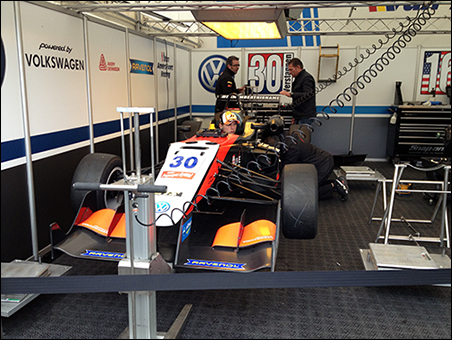For a while I always stayed at the same hotel whenever I went to the Nürburgring. This hotel came with its own pub, which was frequented by hotel guests and locals alike. An evening in the hotel pub was always a small adventure. Behind the bar would be one of the owners, Jürgen, a bold man who spoke German and very little else but believed that if you shouted loud enough you’d always get your message across, even in a foreign language. His wife Janna ran the kitchen and was only ever seen in the pub when serving out her home-cooked meals.
About four years ago, I walked into the pub on a quiet Friday night. All the tables were empty and there were only three bar stools taken; one by Jürgen, one by the local he was talking to, and one by an older man I’d never seen before. He was sitting in silence, staring at his pint of beer, presumably listening to Jürgen’s wild story of reversing a truck onto a busy crossroads in the middle of Cologne during rush hour. When Jürgen saw me, he shouted at me to get myself a bar stool. “IT’S SO EMPTY TONIGHT THAT SITTING AT A TABLE’S STUPID. GO TALK TO ARNOLD HERE.” He pointed at the older man. “HE’S HAVING ONE OF HIS QUIET DAYS.”
I dutifully sat down next to Arnold, who didn’t say much at first. It wasn’t until Janna had brought me an apple juice that we struck up a conversation about how similar in colour our separate drinks were. After that, I ventured to ask Arnold where he was from. He said he’d been born and raised in a village down the road. Then he asked me why I was staying in the hotel. When I told him I was there to visit the Nürburgring, he smiled. “I’ve been going to the Ring since I was a boy. I love that place. These days I often work there as a volunteer.” Soon after he finished his beer and left the pub. I didn’t think much of the conversation.
On Saturday night I returned to the pub and found it very crowded. I had just sat down at the last empty table with one of Janna’s home-cooked meals, when out of nowhere somebody sat down next to me. It was Arnold. “I’m glad I found you. I wanted to show you this.” He placed an old photo album on the table. “I was a marshall at the Nürburgring in the sixties and seventies. Have you ever seen the Ring in those days?” He opened the album and revealed a wonderful collections of black-and-white, slightly faded photographs.
Some pictured people, Arnold’s friends and fellow marshalls, of whom Arnold dutifully told me their life stories. Others showed a small tent next to the Nordschleife. “This was our marshall post. It gave us good shelter from the rain, but it wasn’t very stable. One day the wind was so strong it got blown into the forest and up a tree!” He burst out laughing. “We had to climb up and get it!” The album also contained photos of concrete buildings. With Arnold’s help I managed to recognise the pit building and some other Nürburgring landmarks. It seemed he had a funny story to tell about all of them. He did so with much gusto, too.
The final photograph in the album was a shot of an empty medical stretcher. When I asked Arnold what the story behind the picture was, his face turned grey. The light in his eyes faded and then disappeared altogether. “I thought I’d thrown that away,” he muttered. “That was taken in 1976. We were marshalling on the Nordschleife when we suddenly heard a lot of noise. I’ve never forgotten what I saw that day. We tried to help, but it was so difficult. Poor Niki. No one deserves to have such an accident. I’ve never marshalled again after that. Some of my friends tried to go on, but I just couldn’t do it anymore.. Nowadays I try to make myself useful for the Ring as a volunteer, even though it’s not the same.” Arnold closed the photo album and bid me goodnight again.
I saw him a few more times after that, but he was never again as talkative as that Saturday night. Some locals later told me he lived alone with two cats and didn’t go out much. They also said he’d been suffering from depression for over fourty years, which would put the starting point of his struggle somewhere in the 1970s. I’m not sure how much Lauda’s accident had to do with Arnold’s fall into sadness, but if it was the cause of it then marshalls run even greater risks than I thought they did.

